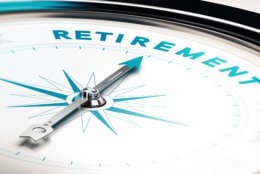Hubbard Radio Washington DC, LLC. All rights reserved. This website is not intended for users located within the European Economic Area.
On Air: Federal News Network
Tammy Flanagan
-
Timing your retirement can be tricky, but putting thought into when you leave the federal service can pay off in the long run.
April 04, 2022 -
It isn’t the year that matters, but the month of the year that you decide to retire. So if you’ve got a friend hoping to take advantage of a higher COLA tell him or her that the clock is ticking.
March 17, 2022 -
In most cases there are a number of “best dates” each year to retire. Even more importantly is picking the actual year itself. What’s best for you may not work for a colleague with the same service time and salary level. So how do you find that magic moment?
March 09, 2022 -
Is it worth considering working longer to protect your buying power in retirement? Or is that too horrible a concept? Many will probably conclude it's worth putting it high up on their retirement planning checklist.
February 02, 2022 -
When it comes to planning your federal retirement, there is no such thing as a dumb question. Some may seem strange, off the way, but if you’ve got a question there is probably an answer you didn’t know about. Or one that surprises you.
January 26, 2022 -
The good news is that federal, postal, military and Social Security retirees in January will be getting the largest cost of living adjustment they’ve had in years. That is also the bad news!
December 23, 2021 -
Every time there is a federal pay raise AND a cost of living adjustment for retirees, some folks figure they can get a piece of both. While it sounds good in theory, it isn't so simple.
December 16, 2021 -
With 30-plus plans to choose from, many working feds and retirees go into shutdown mode and do nothing during the annual health insurance open season. This year it ends on Dec. 13. But that won’t help if you don’t shop around. Inertia is easy.
November 18, 2021 -
One of the big differences between government and the private sector is the field of labor relations. In industry, it is usually disgruntled workers who go out on strike.
September 28, 2021 -
Have your career plans changed some, a lot or completely since the COVID pandemic? Has the retirement tsunami, first predicted in the 1990s, actually started?
September 22, 2021 -
For somebody with a long retirement horizon ahead of them, deferring Social Security until age 70 could boost their benefit 68%. Tough call. But one worth considering very carefully.
September 09, 2021 -
With inflation on the rise, a growing number of feds are crunching the numbers to weigh the financial benefits of working another year or two.
August 25, 2021 -
Should you treat Social Security like insurance or like an investment? Your answer may affect how much money you collect.
July 27, 2021 -
It is possible to work for Uncle Sam long enough to get and qualify for benefits and an annuity, but still leave government earlier.
July 14, 2021













